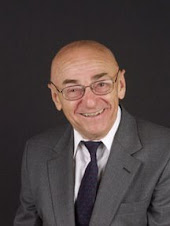Beyond Activism: Environmental Ethics and Sustainability
Climate change is already having sweeping effects on every continent and throughout the world’s oceans, and the problem is likely to grow substantially worse unless greenhouse emissions are brought under control... ice caps are melting, sea ice in the Arctic is collapsing, water supplies are coming under stress, heat waves and heavy rains are intensifying, coral reefs are dying, and fish and many other creatures are migrating toward the poles or in some cases going extinct...
One answer: work to enlist community leaders and campus power-brokers, including university presidents, as allies in the public battle for hearts and minds. We'll look for practical ways to "think globally and act locally" on our own campus, and beyond.

- Bill McKibben, Oil and Honey: The Education of an Unlikely Activist - "Sometime in the course of the past decade I figured out that I needed to do more than write—if this fight was about power, then we who wanted change had to assemble some. Environmentalists clearly weren't going to outspend the fossil fuel industry, so we'd need to find other currencies: the currencies of movement. Instead of money, passion; instead of money, numbers; instead of money, creativity... But if you've built a movement, you've eventually got to put it to work. And now 'eventually' had come. Education needed to yield to action..."
- Elizabeth Kolbert, The Sixth Extinction: An Unnatural History - If extinction is a morbid topic, mass extinction is, well, massively so. It's also a fascinating one. In the pages that follow, I try to convey both sides: the excitement of what's being learned as well as the horror of it. My hope is that readers of this book will come away with an appreciation of the truly extraordinary moment in which we live."
- John Ehrenfield, Flourishing: A Frank Conversation about Sustainability - "Present-day efforts at sustainability, and indeed society's foundational values themselves, have been corrupted and subverted by utilitarian values that turn them into a marketing pitch. In drifting toward unsustainability we have lost our vision... 'Sustainability still has not entered our consciousness, in spite of the torrent of its use and that of its distant cousin, green'..."





 Charles Darwin (
Charles Darwin (











